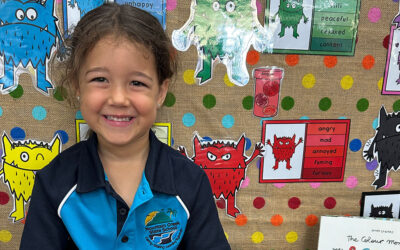Plagues, persecution, babies falling from trees and a fear of spiders… Though the subjects of nursery rhymes aren’t what you’d usually deem suitable for the ears of a small child, these fun tales have stood the test of time, being sung to children for more than 500 years. But, are there any benefits of nursery rhymes for kids today?
Despite the content seeming a little improper to adults, to kids nursery rhymes are a delight always raising a smile. From lost mittens to falling down hills, nursery rhymes quickly become close to a child’s heart. It’s something passed on from generation to generation.
Yet, the value of a nursery rhyme extends far beyond giving your kids a chuckle. Because these age-old tales are also incredibly powerful influencers on preschool development. They play a critical part in early literacy skills. Here are 14 benefits of nursery rhymes for kids.
14 Benefits of nursery rhymes for kids
Vocabulary builder
Repetition is a great way for children to tune into new word. A rhyme’s repetition allows a child to hear the same word over again, helping them to remember what they just heard.
Teaching the structure of language
This repetition also helps a child to become accustomed to individual sounds and syllables that make up words, which is an important part of developing those early literacy skills. From this, children learn how words are formed and then how sentences are formed.
Listening skills
Introducing a child to listening to a short rhyme from beginning to end paves the way for sitting and sharing longer stories, developing their attention span and establishing a love for reading.
Introducing children to stories
Nursery rhymes are a great introduction to the structure of stories, as many have the sequence of a beginning, middle and end. They are also a fabulous introduction to poetry.
Maths skills
Nursery rhymes are crammed with patterns, numbers, counting and sequencing. Many of them also include weight, size and other basic maths vocabulary.
Introducing day-to-day concepts
Big, small, first, last, front, behind… The rhymes are introducing abstract concepts and events in daily life. They also introduce humour!
Developing imagination
With sentences like ‘Fleece was white as snow’, nursery rhymes introduce literary devices such as alliteration, imagery and onomatopoeia. All of these elements develop a child’s imagination.
Building social skills
Nursery rhymes are often sung as a group activity, helping to connect a child to a group and making them feel part of a social circle. Sitting together holding hands to ‘Row Row Your Boat’ exposes your child to how a social group interacts, connects, and takes turns.
Making connections to the past
Nursery rhymes provide roots and a connection to the past. Adults may remember singing them as a child with their parents, passing on the emotional connection from generation to generation.
Building motor skills
Since nursery rhymes are taught with actions, this combination helps develop gross and fine motor skills. Combining the words with actions also stimulates the brain more, leading to a child remembering the rhyme and words quicker!
Exposing children to rhythm and beats
The lyrical nature of nursery rhymes helps a child learn about rhythm and different beats. They help children develop auditory skills such as discriminating between sounds and developing an ear for the music of words.
Enhancing the bond between child and carer
Sharing nursery rhymes together is quality time both carers and children cherish. It allows a carer a chance to focus wholly on the activity without distraction.
Developing memory skills
It’s not just about a carer remembering the rhymes! Kids have to memorise them too! This repetition is a fun exercise in memory and learning.
Nursery rhymes are fun!
These stories might not always make total sense in today’s world, but they are fun to share! If adults are having fun, children are far more likely to respond positively.
The role of adults in sharing nursery rhymes with children
Not everyone is comfortable singing nursery rhymes straight away. Be confident though, as no matter what you think about your singing, your child relishes in your voice and the time you spend together.
- Sing slowly and clearly
- Use props to support the songs
- Involve the children
- Be confident, they love to hear your voice!
If you aren’t confident, head to a hosted nursery rhyme event such as RhymeTime or StoryTime at your local Sunshine Coast library. You can also find babies, books and rhymes events at Brisbane City Council and City of Gold Coast libraries.
Keep Reading
The benefits of learning through play in a messy way
Sensory play and its importance in early learning
Finding literacy in the great outdoors


